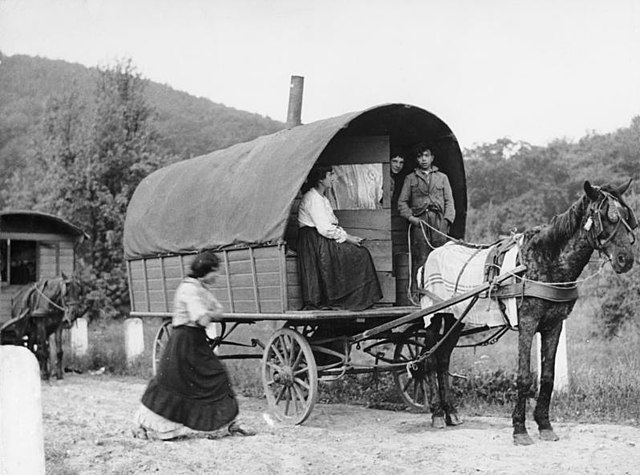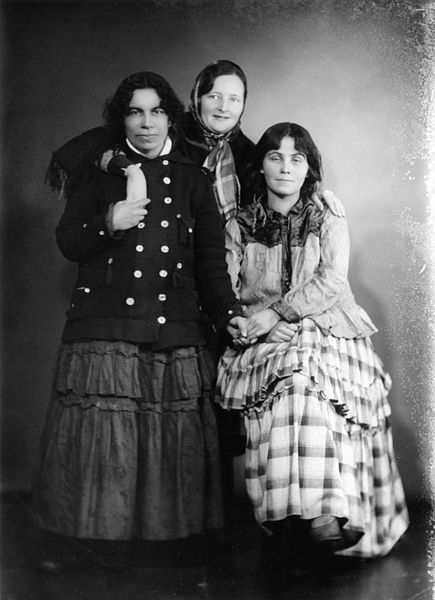The Sinti are a subgroup of Romani people. They are found mostly in Germany, France and Italy and Central Europe, numbering some 200,000 people. They were traditionally itinerant, but today only a small percentage of Sinti remain unsettled. In earlier times, they frequently lived on the outskirts of communities.
Sinti people in Rhine Province, Germany, 1935.
Johann Trollmann, a German Sinti boxer, 1928
Memorial in Nuremberg opposite Frauentorgraben 49, where on 15 September 1935 the Nuremberg Laws were adopted in the ballroom of the Industrial & Cultural Association clubhouse
Deportation of Sinti and Roma in Asperg, 22 May 1940
The Romani, also spelled Romany or Rromani and colloquially known as the Roma, are an ethnic group of Indo-Aryan origin who traditionally lived a nomadic, itinerant lifestyle. Linguistic and genetic evidence suggests that the Romani originated in the Indian subcontinent, in particular the region of present-day Rajasthan. Their subsequent westward migration, possibly in waves, is now believed by historians to have occurred around 1000 CE. Their original name is from the Sanskrit word डोम, ḍoma and means a member of the Dom caste of travelling musicians and dancers. The Roma population moved west into the Ghaznavid Empire and later into the Byzantine Empire. The Roma are thought to have arrived in Europe around the 13th to 14th century. Although they are widely dispersed, their most concentrated populations are located in Bulgaria, Hungary, Romania, Spain, and Turkey.
Three Finnish Romani women in Helsinki, Finland, in the 1930s
Debret, Jean-Baptiste (c. 1820), Interior of a gipsy's house in Brazil
Gypsies camping. Welsh Romanies near Swansea, 1953
Two Gypsies by Francisco Iturrino








